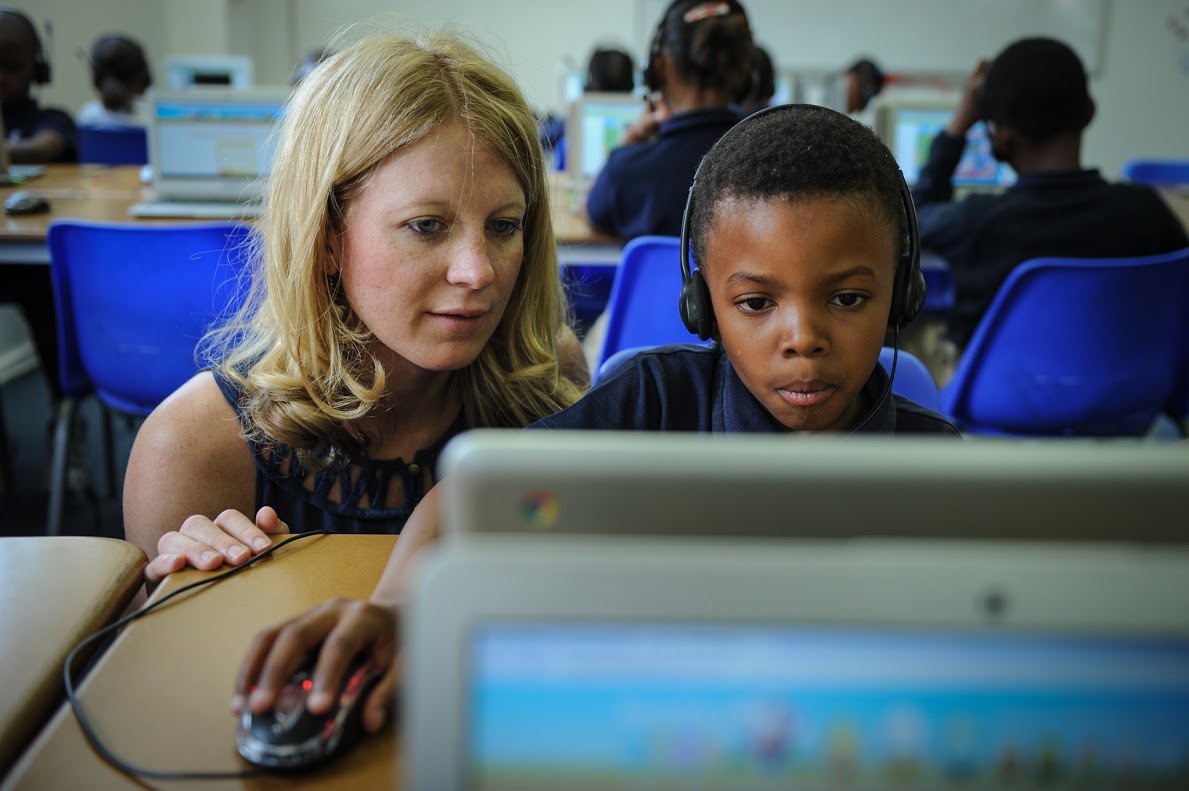
This article was written for the March 2016 issue of Octane magazine.
Sometimes all it takes is a little spark to start a revolution. Just ask Stacey Brewer and Ryan Harrison, EO Johannesburg members who are redefining the educational ecosystem in South Africa. In this special feature, the co-founders of SPARK Schools discuss the state of education in their home country, the far-reaching value of their hybrid learning model and how, through entrepreneurship, they’re changing lives, one student at a time.
Historically, South Africa is ranked among the worst-performing education systems in the world. Why do you think that is, and how are you hoping to reverse that trend?
SB: “The state of education in South Africa is stark at the moment. We’re spending the greatest portion of our budget and GDP toward education, but it’s not translating into anything of value. Overall, we are performing at the bottom of the world in education, particularly in math and sciences. In terms of the teaching profession, it’s the easiest degree to get in South Africa. When you can’t sign up for any other degrees, the universities recommend you become a teacher. The respect of the education industry is at an all-time low; no one really wants to be a teacher. When Ryan and I decided to get involved in the education sector, comments from peers were along the lines of: ‘Oh, that’s sweet’ and ‘Are you doing that full time?’ We want to change the local mindset when it comes to education.”
RH: “And really, that’s where SPARK Schools comes in. In 2011, we launched the first primary school chain in Africa that employs a blended learning model. We’re making a mark through disruptive change, but we realize we can’t compete with the 25,000 schools throughout South Africa alone. What we can do, however, is help bridge the gap. We can provide exceptional education at equal or less than what the vast majority of government-funded schools are running on. And in doing so, SPARK can become an inflection point; people will see that we’re achieving greater results at a quarter or half of competitors’ prices, results that are a year or two ahead of students in other institutions. In pursuing this approach, we hope to permanently shift the way South African education is currently being run.”
You both hail from a business background, not an educational one. What ignited the idea to start an independent school system?
SB: “Ryan and I have known each other for a long time, and we’ve always been passionate about giving back to a country that has given us so much over the years. As it turns out, entrepreneurship was the vehicle to do just that. While pursuing an MBA at the Gordon Institute of Business Science, we saw an opportunity to leverage our business acumen to drive growth in South Africa’s educational sector. Our ‘a-ha’ moment came after we visited the United States to learn more about the learning models that are employed there. We reviewed the successful methodologies in place, and when we found a model that we felt could drive the mission and vision of SPARK, we knew we had to fit it into the South African context. Although we didn’t have any experience in the industry, we believed our innovative approach to education, combined with our strong business knowledge, would offer a sustainable solution to the education crisis in South Africa.”
RH: “Like any true entrepreneur, rather than wait for others to effect positive change, we decided to make a mark on our own. It’s not enough to sit on the sidelines and wait for solutions. We wanted to create schools where we would be proud and confident enough to send our own children one day. So after exploring our options, Stacey and I formed SPARK Schools, a series of private schools for low-income communities. Our mission is to provide a model that is affordable and produces internationally competitive scholars. From a more macro perspective, we want to create a blueprint for South African education; a foundation that could contribute to the success of our country as a holistic entity. Since our founding five years ago, we have been committed to offering high-quality education at a cost the country can afford, and the results have been spectacular.”
…
Read the rest of this amazing story in the March 2016 issue of Octane magazine. Request a free copy by emailing us!
Categories: Entrepreneurial Journey general Inspirational international Interview Legacy Make a Mark members Project Octane WOMEN ENTREPRENEURS
